CISAC names 2022-23 fellows
CISAC names 2022-23 fellows
The Center for International Security and Cooperation (CISAC) is pleased to welcome the fellows who will be joining us for the 2022-23 academic year. These scholars will spend the academic year generating new knowledge across a range of topics that can help all of us build a safer world.
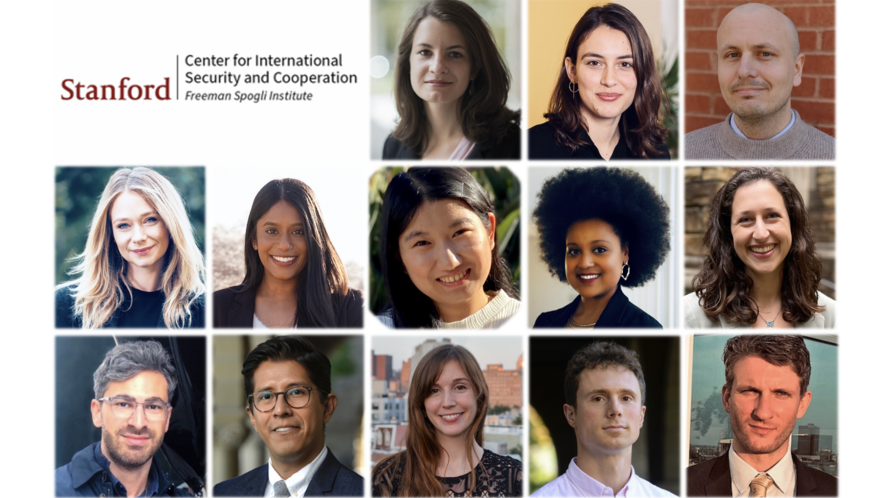
Meet our incoming Pre-Doctoral Fellows:

Julie George
she/her
I am a PhD Candidate in the Government Department at Cornell University, specializing in international security. My current research focuses on answering the question: “Under what conditions do dual-use emerging technologies proliferate in the international system?” In my dissertation project, I investigate the likelihood of proliferation of three emerging technologies: artificial intelligence, robotics, and cyber. I select these three emerging innovations based on their date of discovery in the 1940s and 50s and analyze the convergent/divergent paths taken by states and the private sector.
Previously, I was a Summer Associate Fellow at RAND's National Security Research Division (2020) and Project Air Force (2021). I was the instructor of record for a Freshman Writing Seminar at Cornell University entitled, Emerging Technologies in International Security, as well as a Graduate Teaching Assistant for Introductory to Probability and Statistics and Advanced Regression Analysis. Prior to my PhD studies at Cornell University, I worked at the Atlantic Council and completed a graduate fellowship at the Nonproliferation Education and Research Center (NEREC) housed at KAIST University in South Korea.
Hobbies/Interesting Facts: I enjoy running and hiking, finding the best chai in any city, and spending time with dogs.
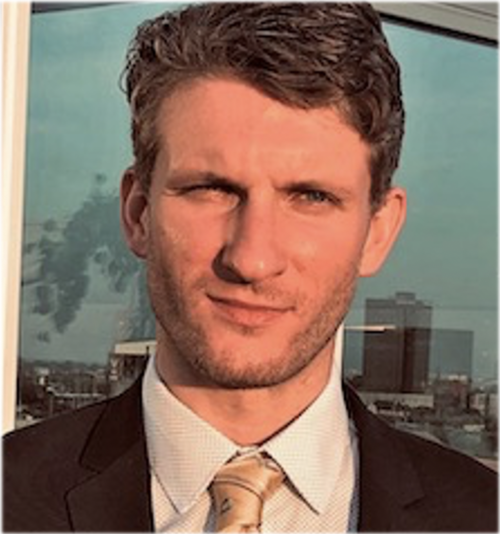
Ian Reynolds
he/him
I am a PhD Candidate at American University, School of International Service. My broad research interests focus on the intersection of science and politics as well as digital technologies and international security. More specifically, my dissertation work explores the history and cultural politics of artificial intelligence and its relationship with military command and control practices in the United States.
During my time at American University, I have served as both a teaching assistant and research assistant. In additional to teaching and research responsibilities at AU, I am a Doctoral Fellow at the Internet Governance Lab as well as a Research Associate at the Center for Security, Innovation, and New Technology.
Meet our incoming Post-Doctoral Fellows:
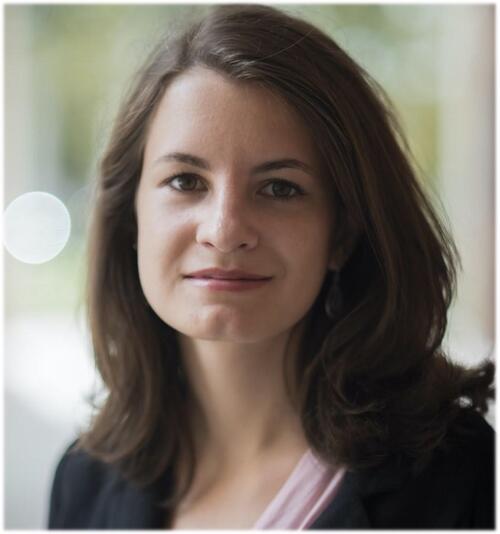
Miriam Barnum
she/her
I am currently completing my Ph.D. from the Department of Political Science and International Relations at the University of Southern California (USC). My research is focused on understanding the motivations and constraints that shape states’ arming choices. In my book project, I examine the role that internal security threats play in driving choices between nuclear, chemical, and biological weapons pursuit options. Other ongoing projects relate to arming choices more generally, international conflict, and nonproliferation and arms control, with a focus on applying computational measurement models to enhance our understanding of these substantive areas.
While pursuing my Ph.D., I was a US-Asia Grand Strategy predoctoral fellow at USC's Korean Studies Institute, and Director of Data Science for the Security and Political Economy (SPEC) Lab. Before coming to USC, I worked as a research assistant in the National Security Office at Los Alamos National Laboratory.
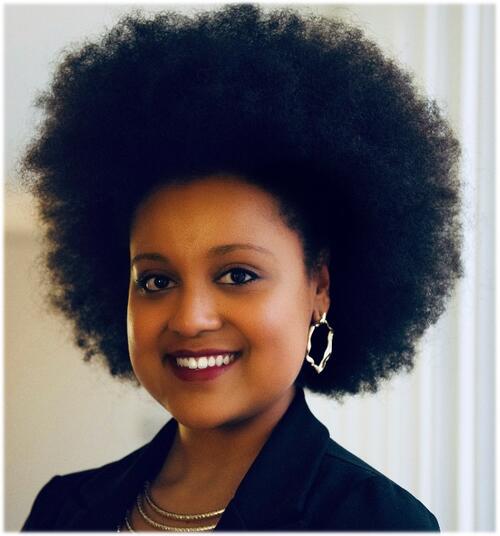
Leyatt Betre
she/they
I am currently completing my Ph.D. from the School of Public and International Affairs at Princeton University. My dissertation, "The Production of Arms and Influence: Weapons, Diplomacy, and the Technopolitics of Nuclear Strategy," interrogated the political and historical origins of strategic narratives commonly associated with nuclear weapons systems by examining the technical communities responsible for designing and developing them.
My research interests cluster around two main areas: 1) the historical relationships connecting ideologies of Cold War rationality, militarism, and techno-optimism in the United States; and 2) transnational histories of anti-colonial struggle and disarmament advocacy in the Global South. In both of these areas, I am concerned primarily with the question of how sites of political struggle serve to concretize, unravel, and disseminate specific understandings of previously contested projects of sociotechnical intervention.
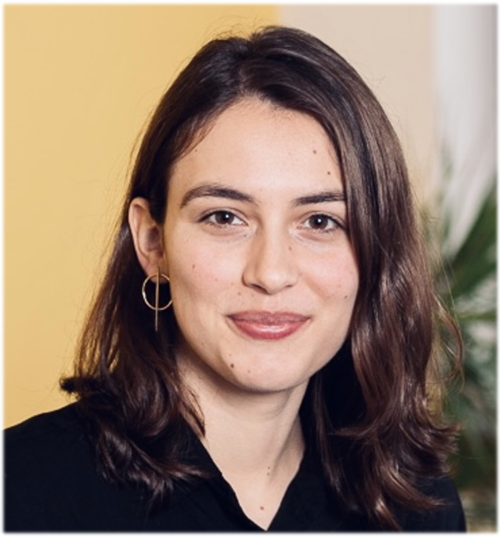
Laura Courchesne
she/her
I am currently completing my Ph.D. from the Department of Politics and International Relations at the University of Oxford. My research is focused on the use of information and communications technologies by state militaries and non-state armed groups during combat. In particular, I am interested the diversity of approaches employed by non-state armed groups to weaponize social media. I am also broadly interested in the organizational adaptations of armed groups in response to changing conflict conditions.
Previously, I was a Research Fellow at the Empirical Studies of Conflict Project at Princeton University. I am currently the Co-Founder and a Co-Director of the Centre for Artificial Intelligence, Data and Conflict. Since 2020, I've taught on armed group use of social media with the UN Systems Staff College. I've also consulted for Google's Jigsaw and Schmidt Futures.

Naomi Egel
she/her
I am currently completing my PhD from the Government Department at Cornell University. My research examines the politics of multilateral weapons governance. Using a mixed methods approach, I assess why states pursue multilateral agreements to govern various weapons, and how their motivations for doing so affect the process and outcome of negotiations. More broadly, my research analyzes how different actors shape and contest multilateral security negotiations, how they frame weapons in different ways, and how power is exercised and contested in such negotiations.
Previously, I was a Hans J. Morgenthau (nonresident) fellow at the University of Notre Dame and the inaugural Janne Nolan nuclear security visiting fellow at the Truman Center for National Policy. I have also been a visiting fellow at the Graduate Institute of International and Development Studies (IHEID) in Geneva, Switzerland. Before starting my PhD, I was a research associate for International Institutions and Global Governance at the Council on Foreign Relations.

Daniel Greene
he/him
I have a Ph.D. from the Graduate School of Education at Stanford University. I work with Dr. Megan Palmer on strategies for risk governance in biotechnology. I use computational social science methods to identify factors that influence the decisions of biology labs to engage in potentially risky research. I have previously worked with Prof. Carol Dweck to develop and test social-psychological interventions to improve student motivation at scale. My dissertation identified and influenced novel psychological constructs for motivating unemployed and underemployed adults to pursue job-skill training. My work has been supported by the Open Philanthropy Project, the Carnegie Foundation for the Advancement of Teaching, the Gates Foundation, the Stanford Digital Learning Forum, and an Amir Lopatin Fellowship.
Previously, I worked for five years as a data scientist and product developer at the Project for Education Research That Scales, a nonprofit that develops resources and infrastructure for disseminating best practices from education research. I also hold a BA in Cognitive Science (Honors) from Rutgers University.

Ramzy Mardini
he/him
I am currently completing my Ph.D. from the Department of Political Science at the University of Chicago. In support of my doctoral research, I was a 2019-2020 USIP-Minerva Peace Scholar at the United States Institute of Peace and a 2018-2019 Fulbright doctoral fellow in Jordan and Turkey, supporting my dissertation research on the Islamic State. My research interests focus on international and intrastate war, conflict dynamics and resolution, and the politics of the Middle East. My current research examines the intersection of social networks and processes of rebellion to study mechanisms of wartime consolidation, particularly with regards to the emergence of the Islamic State.
Prior to graduate studies, I was a nonresident fellow at the Rafik Hariri Center for the Middle East at the Atlantic Council; an adjunct fellow at the Beirut-based Iraq Institute for Strategic Studies; and was a research analyst on Iraq at the Institute for the Study of War. From 2010-2011, I served at the White House within the Office of the National Security Advisor to the Vice President, and worked in the Office of Iraq Political Affairs in 2006 within the State Department's Bureau of Near Eastern Affairs. I am the editor of two books on rebellions in the Middle East and have written commentary on the conflicts in Iraq and Syria for The New York Times, The Washington Post, Financial Times, among others.

Rhiannon Neilsen
she/her
I received my Ph.D. from the School of Humanities and Social Sciences at the University of New South Wales, Canberra in 2021. My research, which sits at the intersection of International Relations and Political Philosophy, considers how cyber operations and big data analytics could be used to prevent mass atrocities. Specifically, by blending interview-based empirical research with ethical analyses, I examine the potential for using (what I call) ‘cyber humanitarian interventions’ to protect populations from genocide, war crimes, crimes against humanity, and ethnic cleansing. As part of this research on algorithms for atrocity prevention, I am especially interested in the question: who (or what), exactly, is responsible for discharging such cyber operations for human protection and to (re)build peace following extreme turmoil? Answering this question is particularly pertinent for repairing trust in the ‘post-truth’ era – an era inflamed by increasing amounts of online dis/misinformation and 'fake news' leading to political polarization.
Prior to coming to CISAC, I was a Postdoctoral Research Fellow at the Australian National University. Whilst completing my PhD, I was also a Research Consultant for the Oxford Institute for Ethics, Law and Armed Conflict (ELAC) at the University of Oxford and a Visiting Fellow at the NATO Cooperative Cyber Defence Centre of Excellence (CCDCOE) in Tallinn, Estonia.
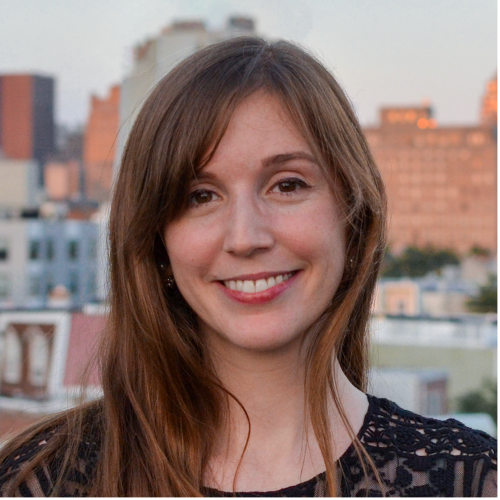
Karen Nershi
she/her
I received my Ph.D. from the Department of Political Science at the University of Pennsylvania. My dissertation examines cross-national anti-money laundering enforcement using data on cryptocurrency transactions. My research interests include understanding the impact of new technologies on international relations, politics, and society and using new technology to study traditional questions in political science. At CISAC, my research will focus on the societal impact of recent developments in cryptocurrency.

J. Luis Rodriguez
he/him
I received my Ph.D. in Political Science from the Johns Hopkins University in 2021. I study the design of limits on the use of force in international law and the effects of hierarchies and inequalities in international orders. I focus on the origins of the global nuclear order from a Global South perspective. My work reconstructs the attempts of Latin American actors to delegitimize the threat and use of nuclear force, secure their access to peaceful nuclear technologies, and include environmental and humanitarian considerations in nuclear agendas. By analyzing the Latin American participation in the global nuclear order, I aim to understand how the Global South reacts when technological advancements challenge existing limits on the use of force.
Previously, I was a junior advisor to the Mexican Vice-Minister for Latin American Affairs before joining the Ph.D. program at Hopkins. My work has been published in International Affairs, the Cambridge Review of International Affairs, Third World Quarterly, among other outlets.

Tongtong Zhang
she/her
I received my Ph.D. from the Department of Political Science at Stanford University in 2022. I study political communication and the political economy of development in non-democracies, with a regional focus on China. My research seeks to understand the strategies that autocrats use for obtaining the compliance of societal actors (e.g. citizens, firms), as well as the impacts of these strategies on the preference and behavior of societal actors. More specifically, I am focusing primarily on how authoritarian governments use deliberative institutions designed to respond to citizen grievances for social control. My dissertation and book project shows that the Chinese government strategically provides responses of different qualities to regime loyalists and dissidents in order to cultivate conformity among the public and reduce incentives for collection action.
Before joining CISAC, I was a predoctoral fellow at the Stanford Data Science Institute and Asia-Pacific Research Center.
Hobbies/Interesting Facts: I enjoy hiking, movies, and almost all kinds of music. I love dogs especially the golden retriever!
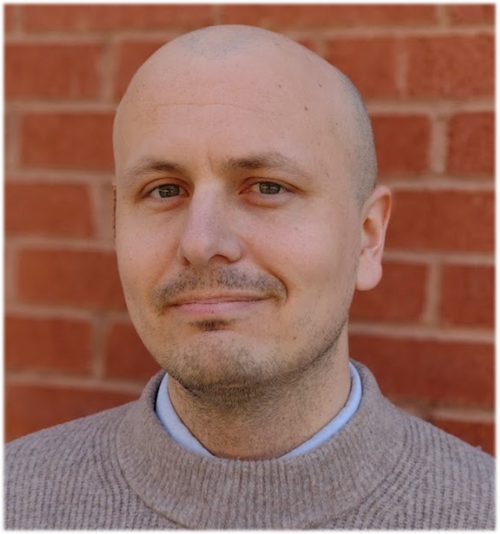
Dan Zimmer
he/him
I am currently completing my Ph.D. from the Department of Government at Cornell University. My research focuses on the implications that anthropogenic existential risk (x-risk) poses for some of the foundational categories of Western political thought, paying particular attention to the historical dimension of ongoing engagement and avoidance with the subject. My doctoral dissertation examined how the political debates inspired by the thermonuclear fallout crisis of the 1950s came to be reformulated in light of the growing public preoccupation with ecological x-risks such as global warming and nuclear winter beginning in the 1980s. My research at Stanford seeks to bring this historical analysis up to the present by tracking how the contemporary study of x-risk came to be formalized in the early 2000s in response to growing concerns about the prospect of machine superintelligence.
Previously, I spent a year as a Boren Fellow studying the tactics used by the Gezi Park protestors in Istanbul, Turkey.
